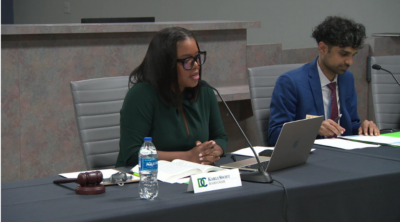on
State election rules now allow individuals to challenge an unlimited number of voters in the Nov. 8 general election, and they specify when and how eligibility can be challenged, and conservative election deniers are taking full advantage of the questionable practice to deny some voters the right to vote.
Georgia voters are facing another very volatile election season as everyday citizens have taken up the call to purge voter rolls and mount individual challenges to voters they consider questionable. Having been the epicenter of political shenanigans since Donald Trump attempted to overturn the 2020 presidential election and falsely claimed that he had won in Georgia and even personally pressured Georgia Secretary of State Brad Rafensberger to “find 11,000” votes for a Trump win.
Additionally, state legislators were ordered only last week to return to the political drawing board to redraw voting districts as current districts deliberately disenfranchise specific populations, including African Americans, young people, and the unhoused.
But this new attempt to eliminate Georgians who will likely cast their votes for Democratic candidates is resulting in private citizens challenging the right of other private citizens to vote.
Karl Swift, chair of the election board of DeKalb County acknowledges that the move on the part of conservative activists in Georgia targets certain segments of the population. “It’s young voters, it’s people of color, and it’s people that are unhoused,” said Swift. “Those are generally the types of people that end up in voter challenges.”
One of those who was nearly erased from the rolls and put at risk of having his voter registration canceled is Gulf War veteran James McWhorter, who received a letter at the barbershop he manages in the middle of October from DeKalb County informing him that someone had challenged his voter status. The challenger, a woman named Gail Lee, argued McWhorter improperly registered to vote at a commercial address and snapped photos of his barbershop, which is located inside an Atlanta-area Kroger supermarket, as evidence. Although McWhorter says he doesn’t know Gail Lee “from a can of paint” he was shocked that she could personally challenge his right to vote because his address listed is to a commercial property. McWhorter was homeless after returning from the Gulf War and slept at his place of employment, the barbershop.
Lee has reportedly filed approximately 500 voter registration challenges, while she admits that others she works with have filed many more.
A CBS News investigation found more than 80,000 challenges have been filed against Georgia voters — many of them by a loose network of about a dozen conservative activists.
Swift said her staff has spent hundreds of hours dealing with challenges she says are meritless. In Georgia, counties are required to attempt to contact challenged voters in advance of an administration hearing that will determine whether they are removed from the rolls.
McWhorter who is no longer unhoused filed a change of address for his voter registration, and he had the opportunity to address the woman who attempted to nullify his right to vote during a public hearing.
For you to challenge me, you have that right as a citizen of DeKalb County, but I served [in the military] to give you that right,” McWhorter told Lee. “I paid taxes here for 20 years, even though I was homeless.”
McWhorter’s case is one of thousands of similar cases with minor technical errors which do not amount to fraud bogging down the election process. Even after three election result recounts in Georgia following Trump’s loss in 2020, election deniers continue to dig their heels in and seek out any possible irregularity, no matter how small or insignificant,
Voting rights advocates were hopeful to put an end to the relatively random practice of challenging the validity of individual voters, as many of those challenges have been the result of clerical errors or minor technicalities.
A federal court in Georgia is currently hearing a lawsuit over the legality of mass voter challenges and whether the practice amounts to voter intimidation.
Join our email list to stay connected.






